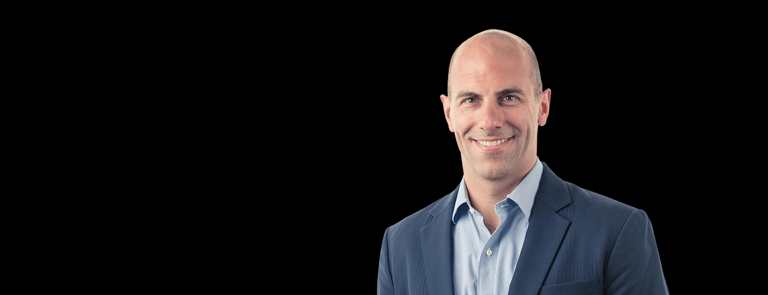Nature positive ‘A soundful spring’

By Cape Capital
03.05.2023

Camille Biancheri and Joe Mares consider why ‘nature positive’ is the key to our future
‘It was a spring without voices. In the mornings, which had once throbbed with the dawn chorus of robins, catbirds, doves, jays, and wrens, and scores of other bird voices, there was now no sound; only silence lay over the fields and woods and marshes.’
In a 1962 essay for the New Yorker, the American conservationist Rachel Carson first sounded the alarm for a ‘silent spring’. Warning of the deadly impact of chemical pesticides on the natural world, she started an environmental revolution that—over half a century later—feels like it’s only just begun.
Alarms once again are sounding for a silent spring, not just from conservationists, but scientists, governments, citizens and even the financial markets. If we do not make immediate interventions at scale to restore and protect nature, our ecology and economy will both break down. According to the World Economic Forum, more than half of the world’s gross domestic product relies on nature.
Fortunately, radical thinkers are re-defining our relationship with the natural world. In this conversation with Cape Capital and Trium Capital, we explore the idea of ‘nature-positive investing’ and learn why it might just be the key to keeping our springs alive and filled with sound.
What is nature positive investing and why is it a radical idea?

Camille Biancheri (Cape Capital): A nature positive world is one where business activities don’t just do less harm, but actually contribute positively to nature. At Cape Capital, we define that by taking the root causes of the five major drivers of nature loss according to the World Wide Fund for Nature (WWF), and making these drivers material investment themes:
- restoring and protecting biodiversity and ecosystems;
- mitigating climate change;
- sustainable use and protection of water and marine resources;
- transitioning to a circular economy;
- adapting to climate change.
We then use this framework as our starting point to understand both the financial and ESG risks and opportunities for each area of focus.

Joe Mares (Trium Capital): It requires a mindset shift from everyone who has grown comfortable with overly simplistic definitions that don’t capture the complexity of what’s happening to the world. We would argue that the Oxford Dictionary definition, which says nature positive is about reversing biodiversity loss, should be replaced with a broader definition, like the one Camille gave. Only through embracing the complexity can we hope to understand how to invest in solutions to drive meaningful change.
This is a very different idea from investing in, for example, a software company that is net-zero yet uses large amounts of energy for computing and offsets its footprint by planting trees. In fact, this offsetting mechanism may be centred around a monoculture forest in an area where land is cheap, which causes damage to the local environment and has a net negative impact on nature. Sadly, this is the case with many businesses claiming to be sustainable solely through the net-zero lens. That is why we are advocating for a more complex and more complete philosophy to invest in real solutions.
Why has nature positive risen to prominence and what’s the business case?
Joe: Mark Carney described two major tragedies that have led to ecological disaster: the tragedy of the commons and the tragedy of the horizon. The first is where we have not properly priced natural resources - soil, air and water quality - as we ought to have done, which has led to overuse. The second is when something is a long-dated problem far into the future where our financial system is not well priced. Most people can think of their children, but not their great-great grandchildren. The same goes for an urgent problem 100 years out.
A number of oscillating forces have brought both tragedies to centre-stage in recent years. There is the top-down scientific evidence, the regulatory financial push, the advancement with carbon pricing and impact measurement, and the bottom-up alarm from the public who now realise that it’s themselves and their children facing the consequences now, not in 100 years. This is forcing companies to see the material risks to their business models. We are now witnessing a transformation overhaul as they figure out their new place in the world.
Camille: The business cases for nature positive solutions are varied. As investors, it’s exciting because there are many ways to invest in nature positive solutions to achieve both market-rate financial returns and real-world impact.
Solar companies are an example where the sustainable business model provides a solution to fossil fuels. Another example is fashion companies that are transitioning their models by using bioorganic materials, switching to resource-efficient operations, and focusing on circularity. A more difficult example is found in industrials - cement is one of the most carbon-intensive materials, yet it’s difficult to imagine a large building without it. Companies that provide alternatives to cement or less carbon-intensive means to make it are significant nature positive investment opportunities.
What are some of the challenges to overcome with nature positive investing?
Joe: Our philosophy is broad-based and necessarily complex as it is based on real-world themes. Necessarily, identifying the right metrics and measurement methodologies is also complex. Ultimately, we are less concerned with the regulatory frameworks and more concerned with the output of the companies we invest in. We strive to find those companies that are measurably doing something about a specific problem. This level of complexity isn’t for everyone, especially investors who have grown used to net-zero as the bastion of sustainability measurement.
Camille: Whilst data is a sizable challenge, collecting it and analysing it from an investment perspective is a considerable opportunity. If we can prove that investing in nature positive solutions is both profitable and measurable, it’s likely to resonate with many investors who in fifty years’ time, like us, hope for a soundful spring.
Joe Mares is Portfolio Manager at Trium Capital
Camille Biancheri is a Cross-Asset Specialist at Cape Capital